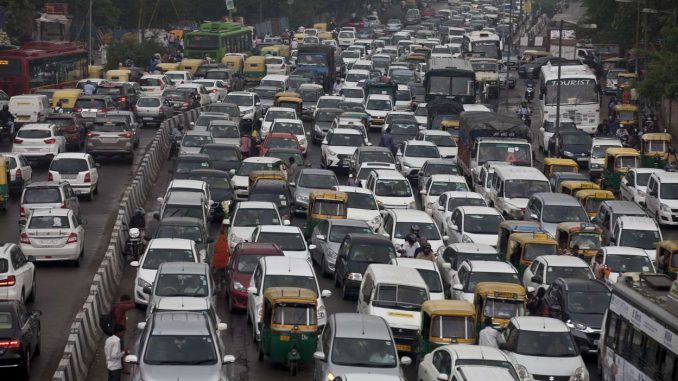
The Supreme Court Wednesday ordered a complete ban on the sale and registration of Bharat Stage IV (BS-IV) vehicles in the country from April 1, 2020.
New Delhi: Underscoring the importance of switching to cleaner fuel to combat vehicular pollution, the Supreme Court Wednesday ordered a complete ban on the sale and registration of Bharat Stage IV (BS-IV) vehicles in the country from April 1, 2020.
A bench of Justices Madan B Lokur and Deepak Gupta also ruled that only BS-VI vehicles will be allowed after the deadline, saying: “It is an established principle of law that the right to life, as envisaged under Article 21 of the Constitution of India, includes the right to a decent environment. It includes within its ambit the right of a citizen to live in a clean environment.”
“It has been held that the right to clean environment is a fundamental right. The right to live in an environment free from smoke and pollution follows from the “quality” of life which is an inherent part of Article 21 of the Constitution. The right to live with human dignity becomes illusory in the absence of a healthy environment. The right to life not only means leading a life with dignity but includes within its ambit the right to lead a healthy, robust life in a clean atmosphere free from pollution.”
BS-VI fuel is estimated to bring down sulphur content by almost 80 per cent — from 50 parts per million (ppm) to 10 ppm. Experts also believe that Nitrous Oxide emissions from diesel cars and petrol cars are expected to reduce by nearly 70 per cent and 25 per cent.
Emphasising the benefits of moving from BS-IV to BS-VI, the Court said “When we compare BS-VI fuel with BS-IV fuel, there is a massive improvement in environmental terms. Once BS-VI emission norms are enforced, there will be a 68% improvement in PM 2.5. This is not a small change. It is a vast improvement and the faster it is brought, the better it is.”
The Society of Indian Automobile Manufacturers (SIAM) had sought more time to sell the stocks of non-BS-VI compliant vehicles manufactured up to March 31, 2020. Automakers said they require “six to nine months” time to shift the assembly line to manufacture BS-VI compliant vehicles and if the request is not accepted, they will have to “start manufacturing BS-VI compliant vehicles well before 31.03.2020 and at least three to six months prior to the said date.”
Rejecting the argument, the Court said, “If there is a conflict between health and wealth, obviously, health will have to be given precedence. When we are concerned with the health of not one citizen but the entire citizenry including the future citizens of the country, the larger public interest has to outweigh the much smaller pecuniary interest of the industry, in this case, the automobile industry, especially when the entire wherewithal to introduce the cleaner technology exists.”
The lawyer assisting the Court had suggested that the BS-VI standards should be enforced at least in Delhi from April 1, 2020. But, the Court said that such an approach was adopted while ushering in BS-IV vehicles and was not very successful.
The Court said, “BS-VI compliant vehicles are going to be more expensive than BS-IV compliant vehicles. People have a tendency to buy cheaper vehicle(s) even from a neighbouring city. We also strongly feel that the problem of pollution is not limited to the NCR of Delhi but it is a problem which has engulfed the entire country especially the major cities.”
“India has the dubious distinction of having 15 out of the 20 most polluted cities in the world. The pollution in Gwalior, Raipur and Allahabad is worse than Delhi. The situation is alarming and critical. It brooks no delay.”
BS-IV compliant vehicles were made compulsory with effect from April 1, 2007. And on July 23 this year, the Centre had told the Court that the manufacture and sale of vehicles not complying with BS-VI norms should be banned from April 1, 2020, when BS-VI auto fuels will be available in the entire country.
Source: The Indian Express

Leave a Reply